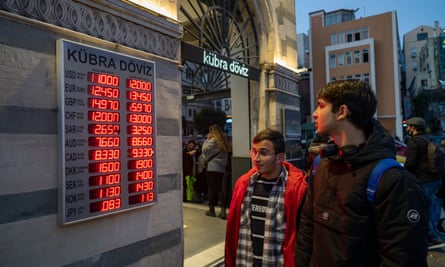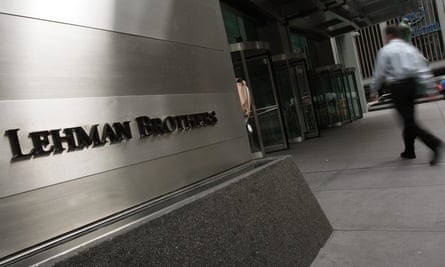After the turmoil of the past two years, the consensus among economic pundits is that 2022 will be calmer. But in late 2019, when the first reports of a new coronavirus started to filter out from Wuhan in China, few imagined within months that the world economy would be flattened by a pandemic. So what are the big risks for the coming year?
A new Covid variant derails the global economy

It is too early to say how serious the Omicron variant of the virus will prove to be but it has already put paid to hopes that life was about to return to pre-pandemic normality. Consumers have not needed to be instructed to obey restrictions; often they have tempered their own behaviour. A return to full-scale lockdowns would have much more severe consequences.
Dhaval Joshi, an economist at BCA Research, says more and more variants will emerge and one of them will spell trouble. The danger from a variant comes from three properties, he says: its contagiousness; its ability to evade vaccines and natural immunity; and the severity of the disease that it causes. “The big issue is not whether the omicron variant is a ‘super-variant’. The big issue is that, eventually, a new variant will be a ‘super-variant.’”
Inflation takes off

The unexpected pick-up in price pressures has been one of the big stories of 2021. The Bank of England, the US Federal Reserve and the European Central Bank were all caught unawares by a sharp increase in inflation, caused by a combination of rising energy prices, labour shortages and supply-side bottlenecks. The Bank of England expects the annual increase in the cost of living to be above 5% by next April but then start to fall.
But central banks will face some tricky decisions if inflation proves more ingrained than they envisage. Just before Christmas, Saxo bank came up with its 10 “outrageous” predictions of unlikely but under-appreciated events for 2022 and one of them was a wage-price spiral in the US sending inflation in the world’s biggest economy above 15%. Even a much more modest rise would cause the Fed to tighten policy aggressively.
China hits the buffers and turns nasty

For years there has been speculation that the world’s second-biggest economy is about to have a severe economic downturn and it hasn’t happened. But legacy problems have now started to fuse with current difficulties to whip up what could prove a perfect storm.
Problems from the past are exemplified by Beijing’s attempts to manage the failure of the property company Evergrande, and prevent its problems infecting the entire economy. Along with many other companies in the sector, Evergrande expanded when Beijing loosened policy and ran into trouble when the authorities took steps to deal with the economy overheating. China has taken a no-risk approach to Covid-19 and has been central to the global economy’s supply-side problems. As the economy has cooled, the nationalist rhetoric from Xi Jinping has been ramped up, particularly towards Taiwan. Economics and geo-politics threaten to collide in 2022.
A crisis in emerging markets

The 30% drop in the Turkish lira in November alone has alerted financial markets to the dangers of a crisis in emerging markets. In truth, most of Turkey’s problems are country-specific, caused by the unorthodox approach to monetary policy of Turkey’s president, Recep Tayyip Erdoğan. Currency dealers have been unimpressed by Erdoğan’s insistence that the way to cope with soaring inflation is to cut interest rates. Faith in the other big emerging market economy viewed as high-risk – Argentina – is also in short supply.
There is, though, a more systemic issue, which is that many emerging markets have borrowed heavily in US dollars often using future export earnings as collateral. In the event that the US Federal Reserve tightens policy, the dollar is likely to strengthen, making it more expensive for poorer nations to service their debts. If the global economy also slows, they will face a double whammy. The World Bank and the International Monetary Fund are already warning of increased debt distress.
A financial crash

Asset prices – shares, bonds and property – have all risen since the initial sell-off at the start of the pandemic. Rock-bottom interest rates and the flooding of financial markets with money created by quantitative easing programmes have made it cheaper to move home and to borrow money for speculative activity.
Asset prices have also been boosted by the message sent out from central banks that any tightening of policy will be limited and gradual. But economies have started to slow after a period of catch-up growth in the aftermath of lockdowns. The risk is that despite weaker activity, central banks are forced into more drastic monetary policy action by higher-than-expected inflation, thereby kicking away the prop that has been supporting richly valued assets.
